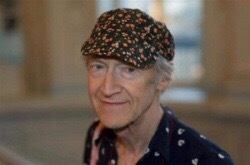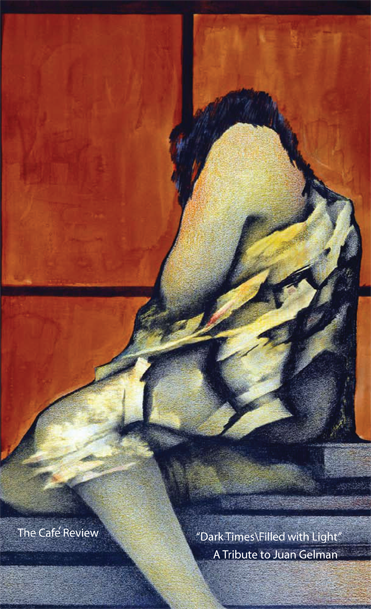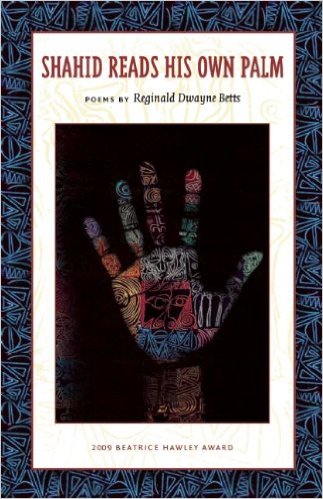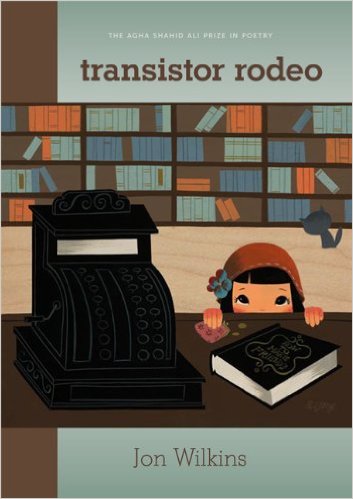M Horovitz interview

Check out this wonderful interview with this great English poet!
https://www.writeoutloud.net/public/blogentry.php?blogentryid=47697
Juan Gelman Interview

Dialogues with Gelman
That Matter of Not Knowing While Knowing
The following dialogue with Jorge Boccanera begins in the poet’s house at the end of November — precisely on the morning he was notified that he had won the Cervantes Prize for Literature — and unfolds with borrowings from other talks on a variety of topics: his latest books, the genesis of creativity, translation, journalism, and investigative journalist Rodolfo Walsh. Gelman speaks softly. His conversation is peppered with humor and he accompanies his jabs with a wink and a typical Buenos Aires wag of the head. From time to time, he makes a statement in the form of a question — and the interview takes on an informal tone — with expressions invariably framed to shy away from dogmatic assertion.
The “Cervantes,” a recognition of a lifetime achievement, is bestowed upon a poet who does not rest on his laurels.
I’m writing a new book (Mundar, recently published) and while a sort of post-partum depression used to set in after each book, now, after the “Cervantes,” something different happens. I keep on writing.
I can see that you don’t let up on writing but what about reading?
I reread two writers: Shakespeare and Cervantes. Not only El Quijote but also his Novelas ejemplares and his plays, as well, that reflect aspects of his imprisonment in Algiers. Cervantes took part in many battles but he battled poverty, too . . . bear that in mind. He wrote “from” poverty, not on poverty. The name (of the Prize) is moving in itself, the “Cervantes.”
But there is other reading and tangential areas, as well, from Spain, related to your work: the mystics, for instance.
I read San Juan de la Cruz, the loftiest poet of the Spanish language, and Santa Teresa de Jesús; but there are the German mystics, too — Eckhardt, Hildegarde of Bingen — and the Dutch.
I consider San Juan extraordinary, the riches of his language, his choice of words, the multiplicity of meanings, that matter of not knowing while knowing. The Spanish poet José Angel Valente wrote that San Juan “says what he says and says what he doesn’t say.” And I say that he also doesn’t say what he says.
In the wide range of your reading you included the Cabala.
I am interested in its vision of exile. We are exiles on earth, in existence, in history. There is a beautiful Guatemalan Indian tradition in which a woman, during the time she is carrying a child in her womb, takes it to see the trees and the birds, explains to it what she is seeing, uses their names so that it can identify them and learn a respect for life.
Let’s talk about your last book, Mundar (To World) , which is both noun and verb . . .
It is a book in which a reconciliation of sorts takes place. As is often the case, it hurts to hope. The theme is that every time the reality of this world gets worse, there is a reaction. There are gray epochs and always a reaction to the contrary. Oscar Wilde said that a world atlas which does not contain the land of Utopia is not worth consulting. The Utopia — I say — is known as sleep, a country humanity visits every night.
A previous book. País que fue será ( Was Will –Be Land ) in its very title points to a time in disarray and a barren land.
There is no comma between “fue” and “será,” no interregnum. The title points to the country many of us wanted and is yet to be. Not only did we want it in the ’60s and ’70s, but so did our grandparents and their grandparents. That babies should literally starve in a land capable of feeding 360 million people a year is unacceptable. The title also refers to the land inside of us.
In “Opinion,” a passage of País que fue será, you referred to poems written in cold blood . . .
Either the blood lacks emotion or the poem turns it cold.
At the core of País que fue será is memory, what “goes back into a haunted house each night.”
I can say something about the uses of memory, of its power to veto what seems undesirable to it. To remember the past is a political act.
The word “search” is the thread that runs through your work and life. In another of your recent books, Valer la pena , the poet searches for himself.
All of that revolves around what we went through for years, defeat, Utopia, the ties of solidarity that break, that whole question. The book is a reflection on how one feels about all those things. One asks oneself who one was then and who now. The questions are the same but formulated from different perspectives.
Your most recent works underscore an “unceasing” emptiness, a state of loss; the “hollow shrieks.”
There are losses. The important thing is how returning to them transforms them into something new.
A conflict between what is living and what is dying, what takes form and what dissolves, pervades these texts. Is that right?
I hope so. Your question is a precise definition of life: the new, what is born, must fight to the death against what is dying, or is already dead. Or against what has died but hasn’t been buried yet.
Is your poetry powered by antithesis, the battle of opposites?
Yes, opposites occur normally in life, it isn’t a voluntary exercise, that’s the way it has always been. I believe that opposites are never resolved in a synthesis; they live on in conflict and feed off one another.
You allude to poetry as “calcinated language,” stripped down language. How does one strip down a generator of images?
Life strips it down, and that sometimes finds its way into writing.
In your writings, the universe manifests itself through written signs, historical narrative, as though all activity could be transformed into writing.
Well, things communicate with one, says Walter Benjamin, and the universe writes from the depth and breadth of time. Miserable and poor is the human being who never gets to read that writing.
Is imagination a tool?
The task of the imagination is to question life experience and express what it discovers. That is the relationship between life, creation, and writing. Fantasizing is something else again, has other limits, and is more closely linked to daydreaming, but imagination is deeply embedded in experience.
Luis Cardoza y Aragón, the Guatemalan poet, sought to make a tracing of imagination . . .
There are cases in which the relationship between imagination and memory is so intense that it creates another memory in which the dream of reality is recreated as a dream of writing.
I believe that subjective experience is the offspring of life experience. Like the reality which awakens it, subjective experience has many guises and the imagination questions them. The result is writing, poetry, the leafless tree that gives shade. This is why the work of the imagination is to question life experience as a clash of realities.
In your most recent books you speak of the poet–troubadours Guillaume de Poitiers and Guido Cavalcanti. Is there a close relation between sonnets in slang, the trobar clus (the linguistically more sophisticated ones)?
Yes, and not only with the ballads of past centuries. There are outstanding examples in the present-day Cuba similar to the Argentine and Uruguayan gaucho payadores (singers of improvised ballads with guitar accompaniment) and the Uruguayans like Carlos Molina or the coplas (popular ballads) to
be heard in the interior of any of our countries. Mayakovski called Esenin a vicecantor (sing-a-long or accompanying singer) because the singer is the people, the inventor of language.
You translated sonnets by Cavalcanti. How did you feel about that task?
Translating poetry is harder than writing it. Besides Cavalcanti,
I translated Yiddish poems written in 1915 by a North American Jew whose name I can’t recall right now. In recent years I’ve been trying to translate work by Carlos Drummond de Andrade, to my way of thinking, Brazil’s greatest poet. I like the quotidian slant of his worldview. Fed up with being harangued about Brazilian modernism, he wrote a verse that I love: “I’m tired of being moderno, now I want to be eterno.” His work has tragic overtones from which much of its irony derives.
Many poets march through your writings and there is even a “tribute” to the Mexican Ramón López Velarde.
I had a very strict teacher in the third grade whom we called “La Guarrochena.” She would read us poems by López Velarde with the same frequency that she whacked us on our fingertips with a ruler when we were caught with dirty nails. I don’t recall the poems, the strange words unfamiliar to me, but I do remember the music. Thinking about it now, it is odd that at that time — I am talking about 1939, more or less — anybody should have been reading López Velarde in Argentina where he has hardly been published. In my opinion, he is Mexico’s first modern poet and I very much appreciated the poet Hugo Gutiérrez Vega’s definition of him as “the bachelor father of Mexican poetry.”
Is it true that while in exile you wrote sonnets in Roman slang?
Out of the country I was unable to write for several years, until ’79. I wrote Sí, dulcemente (Yes, Sweetly). Two elements came together in it: exile and language. I was in Italy and Italian is a sweet, flexible language that gets into your ear. To counteract this, I wrote a series of sonnets in Roman slang. Pornographic some of them, spoken by a made-up character, Nono. My colleagues at the news agency split their sides. Later on, I translated poets of past centuries. It was a form of consolation.
How does the relationship between poetry and journalism play out in your writing? Is there concordance, discordance, mere coexistence?
My being a journalist never interfered with my being a poet. They are two different literary genres — because journalism is literature — both of which coexist in me as good neighbors. There is no conflict but rather harmony. It so happens that journalism and poetry don’t live on the same floor but are simply neighbors. And, while I don’t think journalism has been a help to me as a poet, it did enable me to make contact with diverse realities. They are different languages deeply rooted in different mysteries of life.
Did you ever say that interviewing is the part of the profession you like best?
Yes, and I interviewed a lot of people, politicians, intellectuals, of course: I recall one interview with Leopoldo Marechal and one with the Greek musician Mikis Theodarakis which I turned into a joke. Theodorakis talked so much that I put everything he said into the body of the piece while I interrupted from time to time only to say “Is that so!” To lend depth to an interview you need the other person to participate and you must encourage participation. Lately, I’ve interviewed Carlos Fuentes, Subcomandante Marcos and José Saramago, among others. The one with Saramago was really good because his replies had substance.
Continuing on journalism, a few years ago you won the “Rodolfo Walsh” Prize for your work. Talk to me about that personage.
He was a man who always sought truth, “the most hidden and painful part,” he said, “of the Argentine truth,” and did so by investigating and writing with utmost rigor. His search was always rigorous both in his life and in his work and, inasmuch as it may be said that the former left its stamp on the latter, I would venture to say, as well, that the search in his writing dug into and -opened up channels in his life. Operación masacre seems exceptional, similar to Carta abierta de un escritor a la Junta Militar, (A Writer’s Open Letter to the Military Junta.) Those texts are more than mere testimony. They created something new that nobody had been able to define exactly. Is journalism, literature, or both? Of his stories, I like Esa Mujer (That Woman), and, Irlandeses detrás de un gato (Irishmen After a Cat) which, of course, is extraordinary.
Finally, do the obsessions of poetry operate in hazardous areas?
Poetry is an incandescent calling in which one labors while awaiting the miracle of a happy marriage of life experience, imagination, and words. Chesterton said that the truly miraculous aspect of miracles is that they do sometimes happen.
— tr. Asa Zatz
Shahid Reads His Own Palm

 by Reginald Dwayne Betts,
by Reginald Dwayne Betts,
2009 Beatrice Hawley Award,
2010, Alice James Books,
80 pages, paper, $15.95,
ISBN: 978-1-882295-81-4
Buy the Book
In Reginald Dwayne Betts’ first collection, Shahid Reads His Own Palm, the body of the speaker is haunted by the man he once was and the shadows of the men who came before him:
the six fingers
I need to number
my felonies,
the bright orange
of my country
jumpsuit,
my shackled feet, the
chain – link belt
around my waist
& yesterdays yoked
into my cuffed hands.
Placing his “shackled” body within the modern prison block, Betts offers a connection to slavery’s scar over the American identity. This unavoidable history is bound to the self like a yoke, like cuffs around wrists. Betts cleverly negotiates multi – cultural connections that inform the speaker’s voice within the context of daily life in prison.
Betts seamlessly combines his own history and larger cultural histories with his poetic lineage, creating a speaker who is aware of the way legacy informs identity. These poems conjure a world of
small
ruined cells where ten thousand
years of sentences
beckon over heads & hearts,
silent, a promise, like mistletoe.
In this prison realm, Betts documents the judge – imposed sentences of men in cells while giving honor to the enduring legacy of poetry and poets who craft art from diction, repetition, other kinds of sentences.
We don’t know exactly what put the speaker behind bars, but we see the “heads bowed in abeyance”; we know “tongues touching pain / so rich it crawled inside bruises / and began to beat.” This past is inescapable as the speaker’s life moves forward. It is a life marked by questions: “Have you ever had sex with a man? / Were you raped?”
The energy of this collection is ultimately about the creation of one sustained, informed narrative voice across the book. Betts does this by identifying those earlier writers who claim some ground on which today’s poets stand, calling upon Agha Shahid Ali, a master of Middle – Eastern forms and gifter of ghazals. With careful control the reader is reminded that even behind closed and locked doors, the speaker exists in “a room full / of fathers” and that “the history / of heat & street / corners we claimed / we owned” are owned by Betts and by those poets like Ali who came before.
Ali’s legacy, both in form and theme, finds an evocative place in Betts’ work. Both poets try to reconcile the discordant harmony of past and present, and both use structures like the ghazal as a means toward free expression:
He held the night’s air in his fist and screamed,
then sent word by scribbled ink in prison. . . .
But, for real, why does any of it matter?
Some men never pray at night in prison.
Blame me. Write another poem, a sad psalm.
Shahid, sing for the gods, right in prison.
Most of these poems have a clear structure and rhyme, but it would be a mistake to read these metered lines and inexorable rhyme schemes as a misguided metaphor for the chains and cellblocks of today’s prison system. That would be too easy, and Betts is too smart for that. Rather, these poems create an identity within the legacy of poetic tradition. This meticulously crafted collection rises to the challenges of form and fractured contemporary influences.
Here are a few things that rise: orioles, steam, white smoke from a glass pipe, kites as pieces of paper tied to a string “as if a word can make wings.” Just as these astonishing poems take flight like the paper tied to a string, the men in these poems place words on their bodies (“the miracle / of the prison tattoo gun, / ink stolen from smoke”) as if those bodies too might be as weightless as paper, might rise.
— Mark Rice
Transistor Rodeo

 by Jon Wilkins,
by Jon Wilkins,
University of Utah Press, 2010,
69 pages, paper, $12.95,
ISBN: 978-1-60781-002-5
Buy the Book
note regarding the following review: Transistor Rodeo won the Agha Shahid Ali Poetry Prize sponsored by the University of Utah Press; Zoo in 2010 and Rodeo in 2009.
If what you are looking for is poems that surprise, let me mention this unassuming mother lode. Try these lines from “Love Song”:
Words leapt from your mouth then
like a gymnast on the moon. You were so
lively and full of pockets.
Don’t worry, I am not giving away secrets: There are a number of poems entitled “Love Song” in this slender volume. But I would use this opening stanza as a description of what Jon Wilkins, the poet, does. Using the same title for each of a series of poems, he sends words zipping and zinging through our senses like a knife – throwing magician, then ducks behind the nearest title for a new and completely differently balanced set of knives:
Always assume it is your lover
who stands you said at the end
of every tunnel and is waving
a scarf or an axe. . . .
Leap to the next “Love Song,” and so on. But Wilkins is not just fast or flashy; he prays, catalogues, theorizes. He does these things by himself in the loneliness of space, or else naked and drunk after the prom with William Carlos Williams in his own Mean – Joe – Green – meets – the – boy – with – the – Coke version of “Kenneth Koch’s Unfinished Sestina.”
In the section called “Prayers,” Wilkins uses the titles to place us in a specific time, physical space, and attitude, i.e. “7:34 am, styrofoam cup, metal table / Prayer”:
Still too early
for beautiful
people. Just
the dust
mask / leaf
blower who
may / may not
regret former
truancies and that scar.
His prayers are bright, twisted pieces of cellophane that wrap the everyday in what feels like the mathematics of modern meditations. He uses slashes to turn his short lines into fractions, as though he were working out the balance necessary to prove his theories on God / world. He ends this prayer, “Lord, make me hot as coffee, / and I’ll melt this world like sugar.” Wouldn’t we all like to believe that of ourselves?
If I had been taught prayer or mathematics by Wilkins, I might have stuck with them. Not because I always agree with him, but because he would keep me fascinated by what was coming next. His ability to keep us off balance and interested is uncanny. As he says in “Please don’t hate me because I’m perfect”:
God, I wish I had a nickname like Rabbit.
I wish I’d spent more time swimming as a kid.
He leaves us wishing as well.
— Michael Macklin


